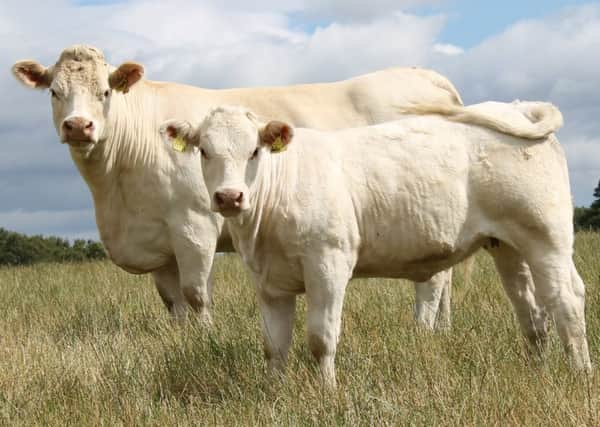Sterling's collapse triggers huge rise in meat exports
This article contains affiliate links. We may earn a small commission on items purchased through this article, but that does not affect our editorial judgement.


That is a rise of 18 per cent on the previous year and it is backed up with sales of fifth-quarter meat or offal rising by 21 per cent.
While European markets have been the main destination for the beef, lamb and pork from the UK, shipments to Asia have also risen, according to the figures supplied by the UK government.
• READ MORE: Farming news
Advertisement
Hide AdAdvertisement
Hide AdThe highly touted Chinese market for pork bought more than half the 41,000 tonnes of pigmeat traded; a 6 per cent rise in the first half of this year compared to 2016.
Lamb produced in this country has also been in demand with exports to both European and non-EU countries up by 18 per cent on the first six months of last year. The value of sheep meat exported in that period has been put at £178 million.
Beef exports to countries outside of Europe also played their part in the record breaking figures with a massive 45 per cent year-on-year rise with almost 8,000 tonnes going to these markets.
Earlier this month, Stuart Ashworth, the economics guru at Quality Meat Scotland, described beef exports outwith Europe as being “useful” in helping the domestic trade, although he added the EU remained the “most important export market.”
“While the current market is being helped by lower domestic beef production it is also being supported by sterling’s weakness,” he said. “This has encouraged greater export activity and reduced the competitiveness of imported product.
“Across Europe, producer prices are currently around 3-4 per cent higher than this time last year, while after adjusting for exchange rate movement GB producer price is similarly up around 3 per cent.”
Advertisement
Hide AdAdvertisement
Hide AdAshworth also highlighted one consequence of the tight home market for beef when he pointed out that, between February and the end of May Ireland had sent more beef to the UK than last year.
“Nevertheless, overall beef imports have declined and with exports increasing and domestic production falling there has been a basic strength in the market which has supported firm prices for most of this year and is likely to continue to do so in the short term,” he added.
‘Get your support claim in now’
Sheep farmers in the more remote parts of the country were yesterday reminded by NFU Scotland that the Scottish upland sheep support scheme (SUSSS) will open for applications this Friday, 1 September.
But the union also made clear their disappointment that, for the second year running, there are to be no improvements to the scheme rules.
As it stands, the scheme, which is worth around £6 million to sheep producers, is designed to assist active hill farmers and crofters through a payment coupled to the number of ewe hoggs they keep as breeding replacements for their flocks.
Now into its third year of operation, the scheme, the union said, continued to cause difficulties for those most reliant on these payments as a major part of their direct support payments.
If they had been taken on board, the union’s recommendations would have seen changes to application periods, retention periods and the targeting of payments; all of which were, the union claimed, budget neutral.
• READ MORE: Highlighting the crucial role of sheep in Scotland
Advertisement
Hide AdAdvertisement
Hide AdUnion vice-president Martin Kennedy, who also chairs the less favoured areas committee, said: “As a union, we had unanimous backing from our membership to pursue, for a second consecutive year, changes to SUSSS to target this valuable pot of funding more effectively.
“While disappointed aat the response, correspondence with Scottish Government hints at the possibility of scheme changes next year and we will continue to pursue scheme improvements on behalf of applicants.”
Despite the lack of change, Kennedy urged farmers not to delay their applications: “With no immediate changes to scheme rules, we urge our hill farmers and crofters to crack on with applications when the window opens on 1 September.
“Given the very wet season, and clear indications that many of our hill farmers are well behind in their workload, we remind them of the need to meet the short application window and that retention period requirements to 31 March 2018 are unchanged.”